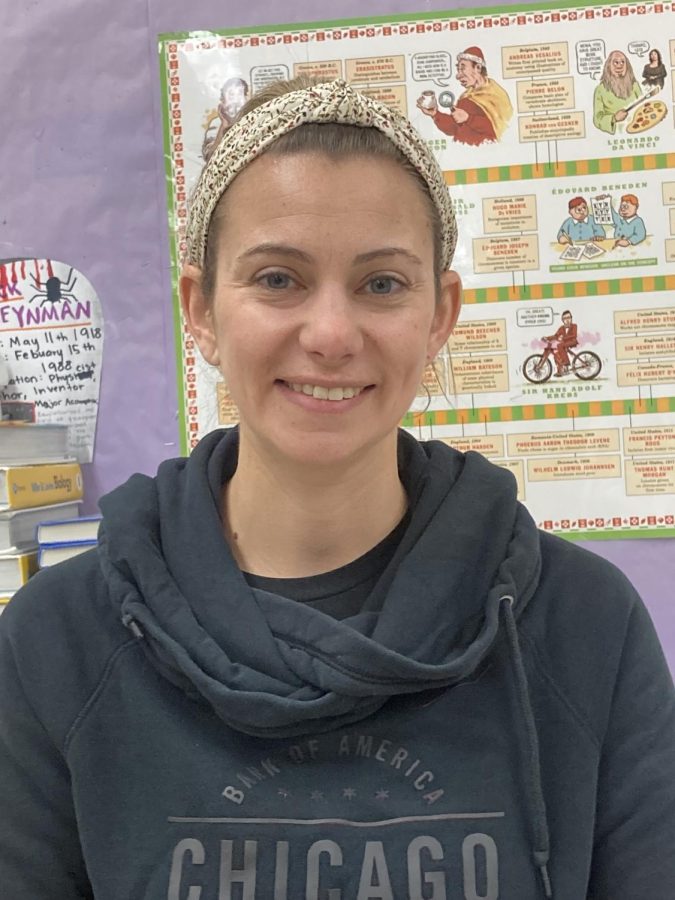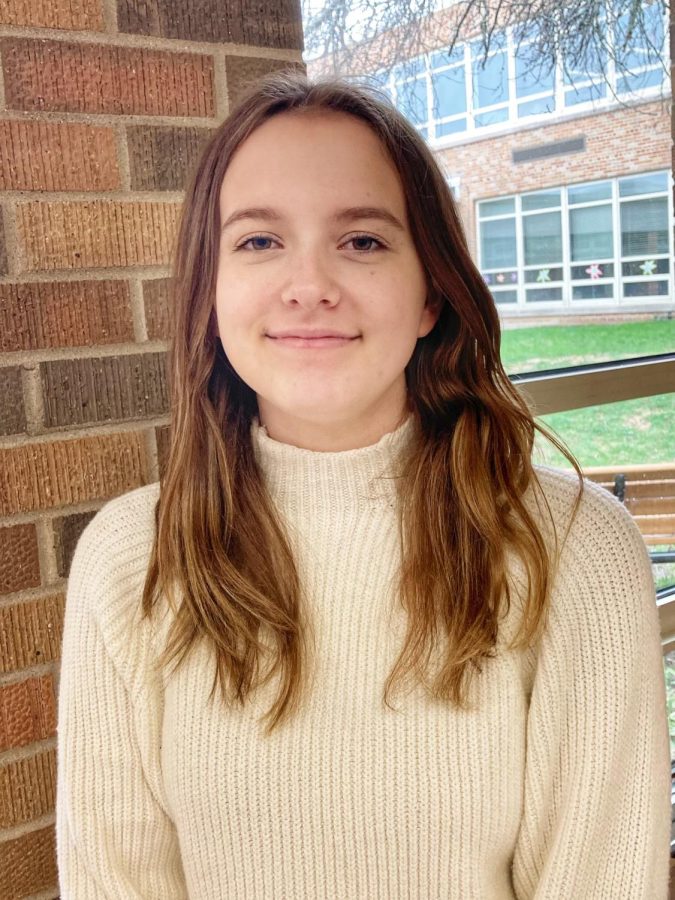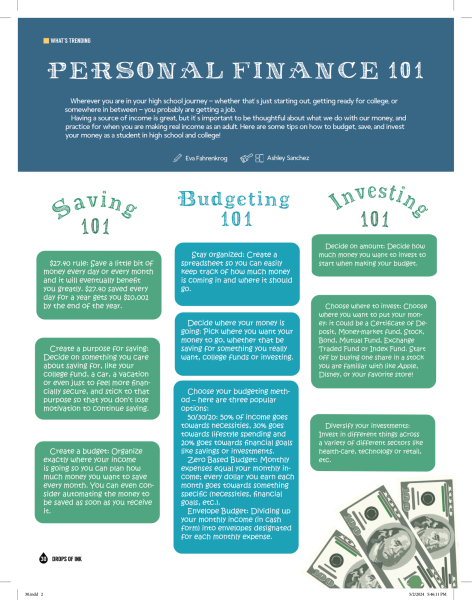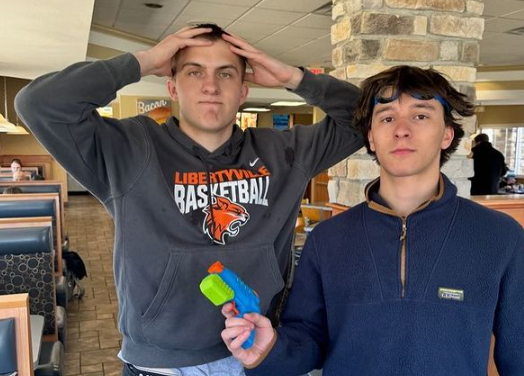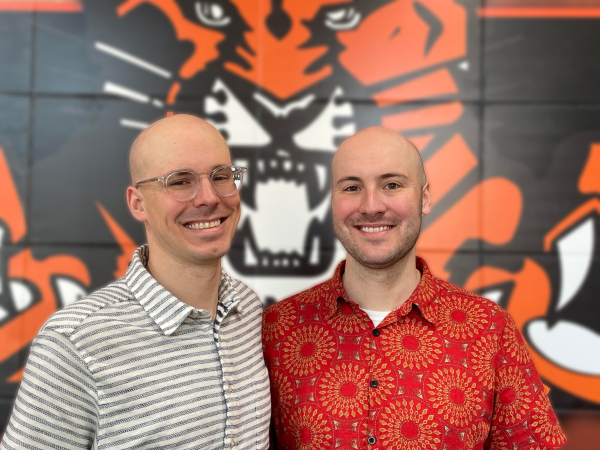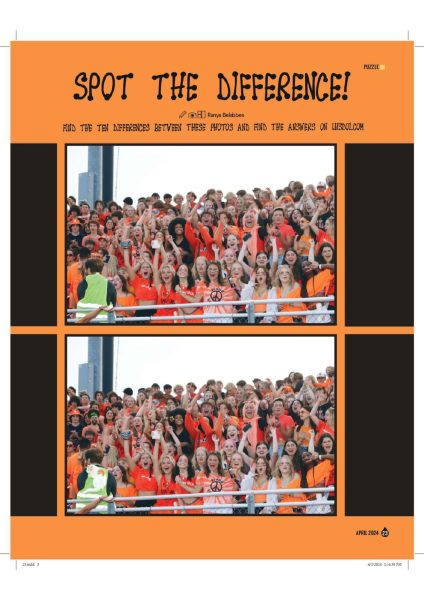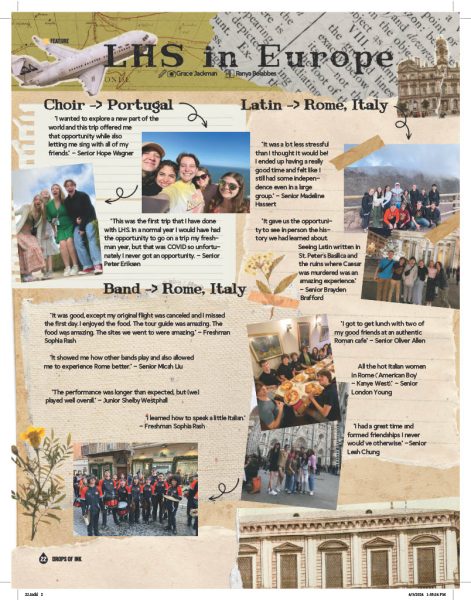“Dig deep and persevere”: Overcoming life obstacles
“It’s okay to not know what you want to do or not have all the answers at the age of 18 or 19” – Science teacher Megan Sharp
I recently missed over six weeks of school due to Superior Mesenteric Artery Syndrome, or SMA. It’s a rare condition where the first part of the small intestine is compressed between two arteries, causing blockage. In my case, it also caused serious abdominal pain, vomiting and weight loss. I spent eleven days in the hospital, had a feeding tube, and received homebound tutoring for five weeks. This was a difficult time for me and led to me wondering about the obstacles others face and how they overcame them.
Deciding a College Major
Science teacher Ms. Megan Sharp faced the challenges that came with figuring out her college major.
“I started off [with] nursing, and then I went to business,” Ms. Sharp said. “And then I had a little stint and I was a fashion major. And then I went back to science to be a biology major.”
Ms. Sharp said she learned a lot about herself personally, in not just what she wanted to do but what career she wanted to be a role in. She didn’t want to be stuck in an office; she wanted a job where she could interact with people and be active in.
“I also wanted to coach at the same time, so I thought teaching would be a great aspect for that,” Ms. Sharp said. “On top of being able to teach, I’ve always loved science. I’ve always loved biology.”
For those going to college, she advised trying out as many different classes as possible, even if majors aren’t decided yet.
“I highly recommend going to a community college first, just to test the waters with a lot of different classes before you dive into the deep for your university,” Ms. Sharp said. “It’s okay to not know what you want to do or not have all the answers at the age of 18 or 19. You’re going off to college.”
External Assumptions
Junior Kate Mitchell faces a different kind of obstacle. She has to face the obstacle of the assumptions that people make about her being someone who uses a wheelchair.
“Most people aren’t super educated in disabilities,
[and] they often assume i’m dumb or incapable,” Mitchell said.
Mitchell has realized that she’s a resilient person from her experiences and unique challenges.
“I’ve learned to take the things that I have to overcome and use those experiences for good instead of just getting mad,” Mitchell said.
She says she’s gotten lucky. She has a lot of friends that don’t hesitate to help and support her.
“I’m extremely grateful for them,” Mitchell said. “I think it’s really important for people who are different like me to have that support system.”
Moving to a New Country
French teacher Christophe Guiard faced a difficult obstacle 29 years ago when he came to the United States.
“I had studied English at school for twelve years,” Monsieur Guiard said. “But when I came here, it was a shock that I could not communicate with people.”
Monsieur Guiard learned that he had to be humble. It was frustrating to him that he could not communicate as well as he thought he could.
“[I] only wish[ed] that [I] could speak French, and then I could express myself much more easily than trying a different language,” he said.
Monsieur Guiard tries to tell all his students that he knows how it feels to not be able to communicate.
“Don’t be afraid to make mistakes, this is how you learn,” Guiard said.
Sports Injuries
Obstacles can set people back from doing things they enjoy. For junior Lorelai Fisher, one life obstacle she has faced is being injured for most of the cross-country
season.
“That was rough because I wanted to participate in the season and the team, but I couldn’t,” Fisher said. “Now, because of this, I’ve been a lot more careful, and making sure that I won’t get injured again because it was a second-time injury. I’ve been very good about doing the [warm-up] exercises [to prevent injuries].”
Fisher wanted to be able to run with her friends, but she couldn’t, which was disappointing for her. However, she believes that athletes should be aware of any physical limitations to prevent negative consequences.
“It’s really important to listen to your body, and when your body’s saying that it’s hurt [you should] listen to it,” Fisher said. “Don’t push yourself any further.”
Switching Careers
Math and Computer Science teacher Ms. Christine Falkstrom used to work as a mechanical engineer. Once she had her two children, she stopped working for a while. Ms. Falkstrom knew she wanted to go back to work eventually, but she didn’t want to go back to what she was doing before.
“I learned that I had to be extremely good at time management, to balance going back to school and getting my teaching degree with raising two young teenagers,” Ms. Falkstrom said.
Ms. Falkstrom had to balance home life and school, as well as working part time. She had a strong desire to get over her obstacle to the other side and overcome it. She says it was important for her to make a plan, write it down and involve all the people who were close to her.
“I could not have done what I did without the help and support of those around me,” she said.
We’ve all faced some sort of obstacle in our lives. Whether big or small, it will make a huge impact in our lives – and it may even make us stronger.
“There are times where it’s going to seem like you’re not going to get to the other side,” Ms. Falkstrom said. “And those are the low points that you have to dig deep and persevere. Keep going forward even if it’s just a little bit at a time and eventually, you’ll get there.”



